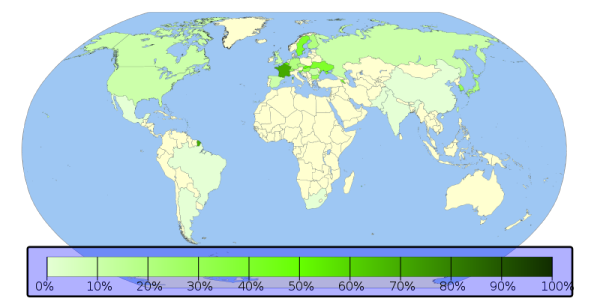The same week that Fukushima announces yet another leak of radioactive water…
“TOKYO, Oct 1 (Reuters) – The operator of Japan’s crippled Fukushima nuclear plant said on Tuesday that four tonnes of rainwater contaminated with low levels of radiation leaked during an operation to transfer the water between tank holding areas.
Tokyo Electric Power Co, or Tepco, has been trying to contain contaminated water at the Fukushima site after it found 300 tonnes of radioactive water had leaked from a tank at the plant. Fukushima suffered triple nuclear meltdowns and hydrogen explosions after a March 2011 earthquake and tsunami.”
…we also hear of last year’s near miss in a British nuclear submarine:
“Nuclear scare at Navy submarine base after ‘unbelievable’ failures”. Double defects left vessels without vital sources of coolant for their reactors, despite earlier warnings and incidents”: The Independent on Sunday
“New investment in clean energy fell 11% in 2012
US, Italy, Spain and India were among the biggest decliners; while Japan and South Africa led the charge of “new markets”
London, 14 January 2013. Clean energy investment declined 11% in 2012, weighed down by regulatory uncertainty and policy changes in big markets such as the US, India, Spain and Italy. Sharply lower prices of solar and wind technology also exerted downward pressure on investment volumes, though they allow higher installation levels per dollar of funding. “ Bloomberg
A case for crowd-funding?
Crowdfunding (alternately crowd financing, equity crowdfunding, crowd-sourced fundraising) is the collective effort of individuals who network and pool their money, usually via the Internet, to support efforts initiated by other people or organizations. Crowdfunding has its origins in the concept of crowdsourcing, which is the broader concept of an individual reaching a goal by receiving and leveraging small contributions from many parties. Crowdfunding is the application of this concept to the collection of funds through small contributions from many parties in order to finance a particular project or venture.
How can the public, sensitive to the horrific consequences of nuclear accidents have a say on the energy of tomorrow? There is little doubt that what drives the main corporations towards more nuclear energy is economic as huge profits are to be made out of it, but we know full well that the safety issues are far from being resolved. There has been a loss of enthusiasm by private firms for solar panels as the Chinese have began “dumping” cheap solar panels on Europe and the scramble for Africa is seen as opportunities to open “markets” rather than development. The model proposed by clean energy firms to African countries is very much neoliberal, rather than cooperative (with some exceptions), making solar energy more expensive and limited than it could be. In this scenario, nuclear energy is presented as the only “clean” alternative to burning fossil fuels, if we could qualify as “clean” making land, air and water radioactive.
Perhaps this is the time to stop hoping that the private sector and the politicians will finally do the right thing and start developing a crowdfunded network of alternative energy cooperatives.










